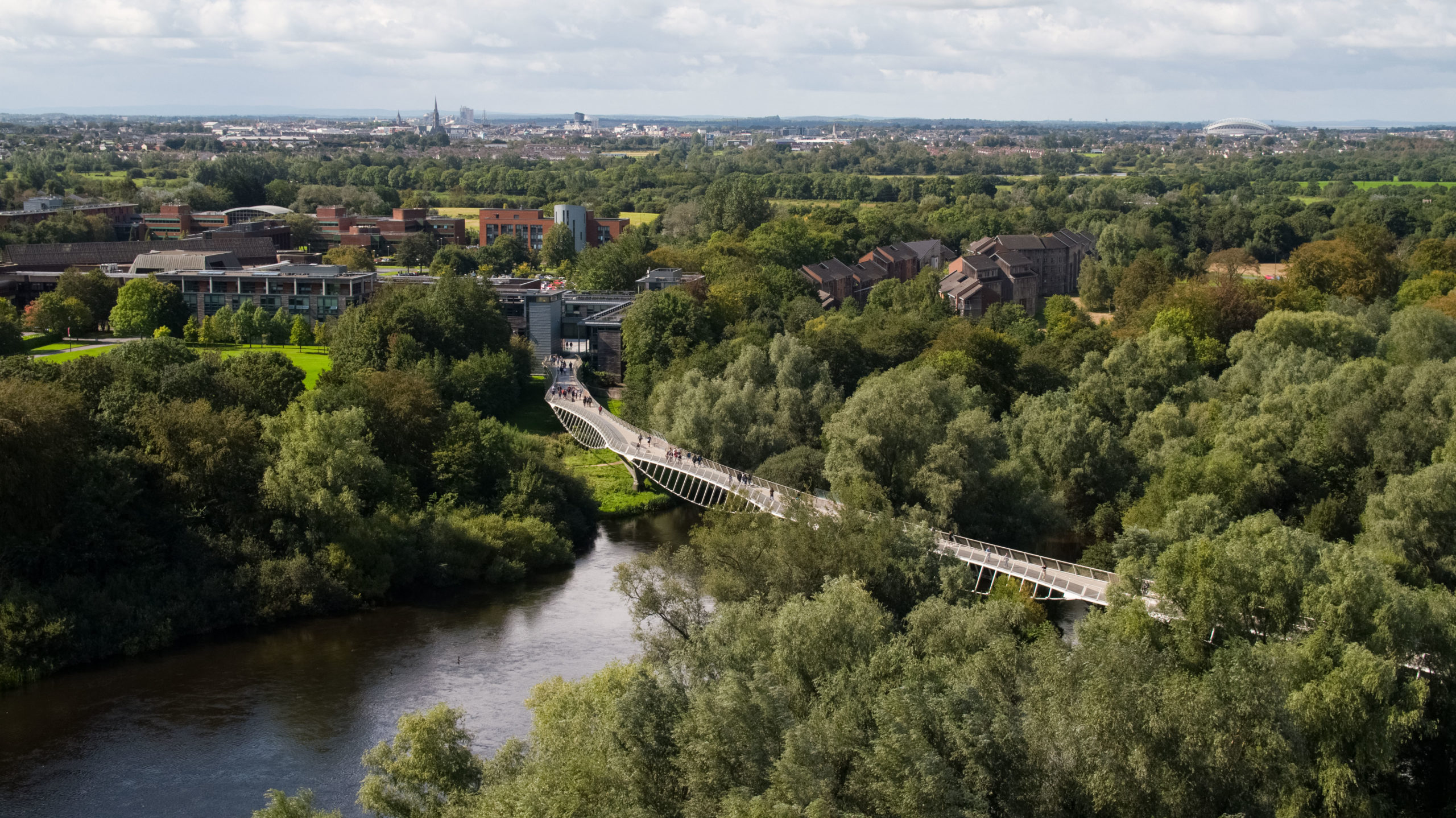University of Limerick is the first Irish institution to appoint a Futures and Foresight Lead to work on Sustainable and Regenerative Futures.
Andrea Deverell explains the work that is taking place to reimagine UL as a ‘Sustainable University’.
“Preparing for the UL 50 celebrations which kick off in May, gave us an opportunity to stand at the crossroads between UL’s past achievements and what we could be and do in the next 10 years with a new president at the helm and being fully cognisant of the urgent need to lead in a local, national and global paradigm shift to a collective culture of sustainability in line with the UN Sustainable Development Goals,” explains Andrea.
“We reached out to individuals from right across UL, all of whom have one thing in common; a commitment to sustainability as a way of life, not just as an abstract or theoretical concept. We invited them to come together to be part of a working group that would explore, drive and model sustainability at UL. We have come together at UL to reimagine UL as a Sustainable University.
“The group, which became known as the UL Sustainable University Working Group, felt different from the start. Starting out with 12 individuals, it has continued to grow with people reaching out to join us continuously and the group is currently well over 60 individuals strong.
“We realised that for us to be successful and really bring about the kind of vision we were aiming for, we need everyone to get involved.
“We discussed the importance of sustainable governance and the role of procurement in ensuring that we source products and services that are sustainable. We discussed local produce, and producers and how to reduce air miles.
“We talked about sub-suppliers on campus and the kind of active roles they could play in the future. We were all acutely aware of the need for a radical mindset shift at UL to unlearn some of our inbuilt behaviours and learn new behaviours and ways of being. We discussed our relationships with the community and industry and how we could more actively engage and build bridges to enable increased collaboration across the SDGs.
“We discussed the UL campus as a fundamental starting point: Our collective space where sustainability should be seen, felt and experienced. We considered our approaches to education and our curriculum, discussing how we could engage more meaningfully with sustainable development.
“We talked about the central role of research and how it connects with sustainability and how we can actively encourage a deeper campus wide focus and a series of North Star projects to drive future activity.
“A sustainable world will not happen without determined effort – our actions today determine the future we manifest. To become a Sustainable University, we must start by acknowledging that true sustainability will require permanent adaptive responsiveness to on-going change.
“We identified four high-level challenges associated with our four working groups: governance, the economy, society and the planet.
“We identified a set of missions inspired by our four grand challenges. They are bold and ambitious missions that will serve as our starting point for guiding action. Importantly, the missions we have shaped are still malleable, they will require campus wide engagement, ownership and leadership. Each of our UL missions are underpinned by a set of declarations. These declarations are where we hope to be in 2030.
“Over the coming months we will work with the campus community to further develop each of our missions. Some will be prioritised to start immediately, others will be launched over the coming years.
“Some are very ambitious while others build on work that is already going on in UL. We will learn as we go, shaping and reshaping our missions. Inevitably, some will fail and some will succeed.
“As a first step, we have dared to imagine what UL could be like in 2030. What would it feel like to work and learn at UL. How would we experience our campus, walking through large re-wilded spaces, welcoming nature into our buildings, protecting natural habitats, celebrating our community, producing energy, with a radically reduced carbon footprint, ensuring equality and diversity in the workplace and universal access to education, working in partnership with local communities and companies towards a world that we would be happy for our kids to inhabit.”










